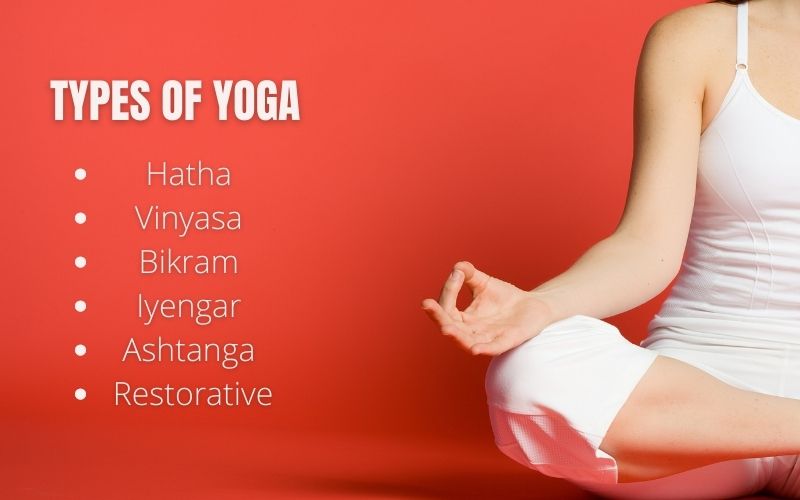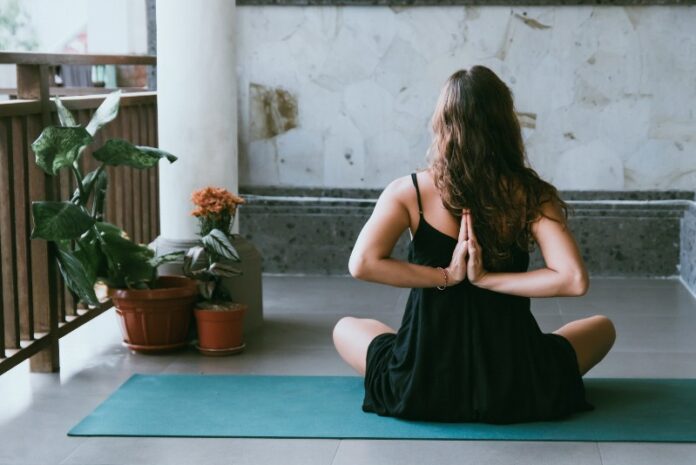Table of Contents
Yoga: What Is It and How Does it Work
It has been proven that yoga improves mental health. Yoga serves as the bridge that unites a person’s mind and body and keeps them in touch with the larger human community and the cosmos. Even though yoga is an age-old practice that started in India thousands of years ago, it is still regarded as being very relevant and helpful in modern society because it covers a wide spectrum of physical, psychological, emotional, and spiritual health issues.
While there are many various varieties of yoga, ranging from easy to demanding, stretching, breathing, and a period of deep relaxation or meditation are usually included in practice. Yoga is regarded as one of the oldest forms of exercise. Yoga is a type of physical activity that incorporates various body positions, breathing exercises, and meditation.
Yoga practice on a regular basis may:
- Reduce tension
- lower levels of anxiety
- lower depression
- Boost sleeping conditions
- raise the standard of living
Yoga checks off all the necessary boxes and can assist you with practically all your fitness and lifestyle objectives and desires, whether they include boosting immunity, improving mental health by lowering stress or anxiety, or developing muscle flexibility.
After using one of the many mind-altering substances, yoga gained a reputation in the West as something that hippies used to achieve spiritual enlightenment; however, yoga nowadays is a much more recognized and popular practice that focuses on physical and mental health wellness.
Yoga could be quite beneficial in treating and relieving a variety of ailments, disorders, diagnoses, and stressful situations, if you’ve tried it out. You are also likely already realize that it involves much more than just a straightforward workout or stretching regimen and calls for both your body and your mind.
It’s one of the few physical exercises that successfully connect your brain and body. If that interests you, keep reading to learn more about the connection between yoga and psychology and the numerous advantages of yoga for the mental and physical health of adults, adolescents, and children.
Additionally, yoga provides a fantastic way to experience flow, which is the condition of being totally absorbed in the present and unconcerned with the passing of time.
6 Most Popular Types of Yoga

Hatha
Incorporates softer, slower-moving moves that are most appropriate for beginners. The primary relaxation methods and asanas (postures or poses) utilized in yoga practice for novices.
Vinyasa
The pacing starts slowly and then increases faster, linking breathing and movement together. Vinyasa strives to make the body stronger and contributes to the development of lean muscular mass.
Bikram
Involves practicing a predetermined sequence of movements to promote blood flow in a hot room. Consists of slow, steady movements that stretch muscles and boost circulation.
Restorative
Relaxation is part of the definition of restorative yoga. It is a style of yoga that encourages mental, physical, and emotional relaxation. The focus of this approach is on passive stretching to help you slow down and open your body. Healing is the focus of restorative yoga, which focuses on relaxing and relieving stress.
Iyengar
Through the practice of asanas, Iyengar yoga focuses on aligning the physical body structurally. Utilizes props like blocks, chairs, and straps to assist in finding the right body alignment. Moves that emphasize accuracy, timing, and the use of props to increase strength and stability
Ashtanga
This is a very intense, highly energizing form meant to make you sweat. It involves rapid, sequenced poses and is more physically demanding.
Common Myths & Misconceptions about Yoga
There are many myths about yoga out there, from the ridiculous to the totally false. Whether you’re a beginner or have been practicing regularly, you’ve probably heard many of the myths that have persisted about yoga for years. Perhaps you even think some of them are true.
Then why do we have so many myths about yoga, and how did they begin? There are a few hypotheses as to how they got started, but like with many misunderstood traditions, speculative thinking and preconceived notions are what gave rise to these rumors.
Fear not, we’re here to dispel the most widespread myths and misunderstandings about yoga and to provide some clarity on what the modern practice of yoga entails.
- Yoga is Just for Women
- Yoga Is for Flexible People Only
- Yoga Isn’t a “Real” Workout; It’s Just Stretching
- Just Another Health Fad: Yoga
- Yoga is a form of religion.
- All Yoga is the Same
- The Ultimate Benefits of Yoga for Mental Health Wellness
- You’ve probably heard about yoga’s huge benefits, which extend beyond reducing or protecting against mental illness. These real benefits include:
- Yoga enhances flexibility, balance, and strength.
- Yoga helps relieve back pain.
- Yoga improves heart health.
- Yoga helps you calm, which promotes better sleep.
- The practice of yoga can help you cope with anxiety
- Yoga encourages improved self-care.
- yoga improves concentration and memory
- Your strength and endurance are increased.
- Stress is reduced by yoga.
- Helps you in adjusting to hormonal changes that occur both before and after menopause.
- Calming fear and worry brought on by a bad illness or diagnosis.
- Lowering stress and the intensity and frequency of depression and anxiety symptoms.
- Posture correction.
- Enhancing your physical look by taking a taller posture, feeling more self-assured, and managing your weight more successfully.
- You can develop your sense of self with yoga.
- Yoga supports resolving concerns relating to your family of origin.
Conclusion
Yoga is almost always the solution to a problem. Yoga is a physical activity that not only strengthens your body but is also effective for mental health and helps you retain inner peace. Yoga may therefore help with anything. Additionally, yoga is a lifetime commitment and not just a one-day activity.
Practicing yoga is the key to a long and healthy physical life as well as a harmonious spiritual conscience. Yoga is the perfect synchronization of the mind and the body. It is seen as a spiritual act that awakens self-awareness rather than just a physical kind of exercise.
Yoga is a long tradition that is frequently veiled in mystery. But being mysterious need not be bad. Head on the mat if you want to develop your core strength, balance, and your mind-body relationship.

